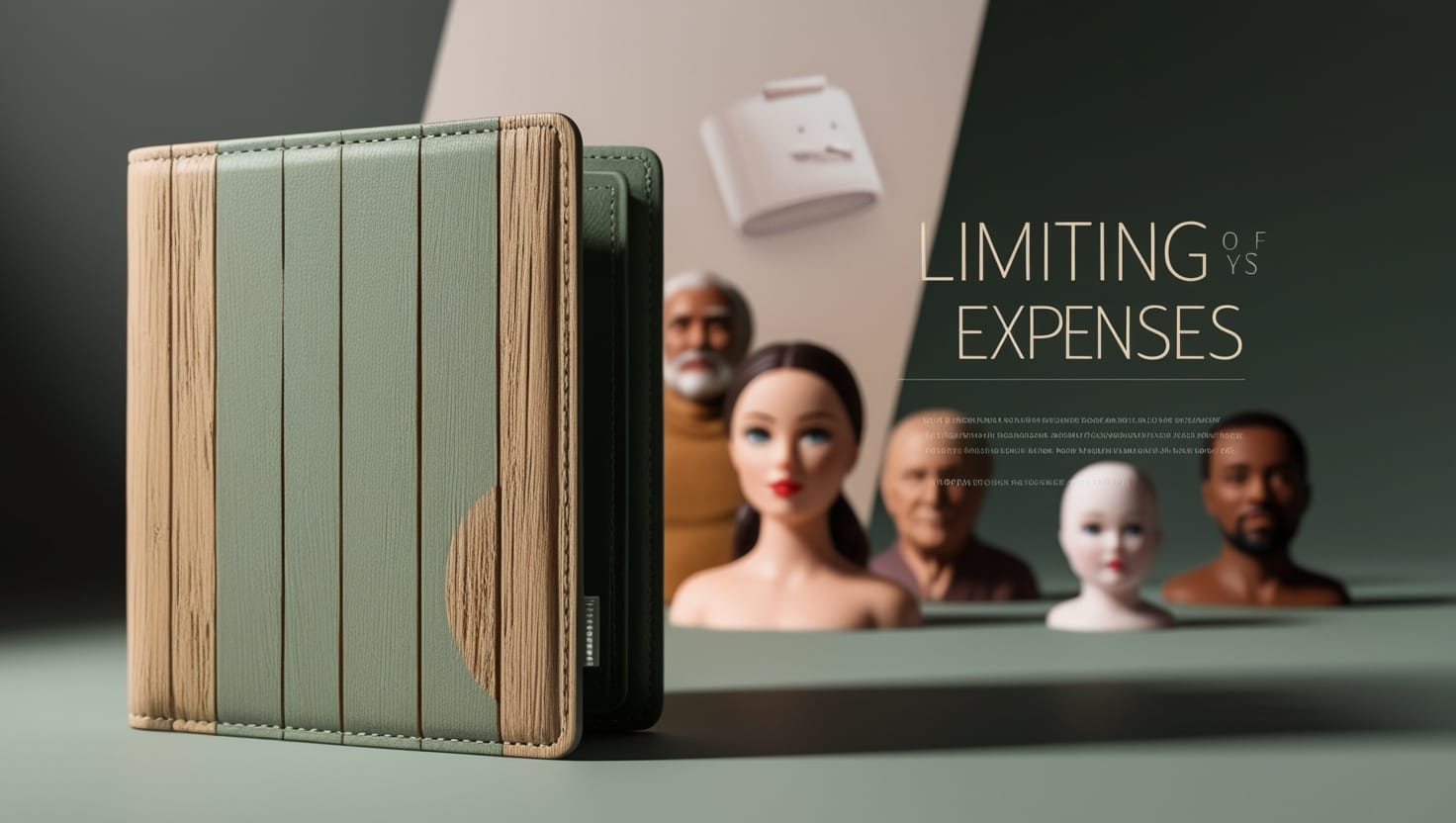Introduction
In a society where appearance is often associated with success, the idea of looking “poor” can seem counterintuitive, even shocking. Yet, more and more people are adopting a more modest and discreet attitude toward their financial success. In a world where excessive consumption is encouraged, this minimalist approach allows people to protect their finances, well-being, and even their relationships. But why adopt a lifestyle that seems less flashy? This article explores the reasons and benefits of looking poor in a world where material wealth is often overvalued.
Protecting Yourself from Others
Looking poor can be an effective form of protection. Displaying external signs of wealth can attract envy and sometimes even bad intentions. By avoiding the appearance of wealth, you minimize the risks of finding yourself in situations where friends, family, or even strangers might ask for financial help or try to take advantage of your presumed generosity. By appearing more modest, you reduce others’ expectations and avoid becoming a target of endless solicitations.
This approach also helps maintain more authentic relationships, where people appreciate you for who you are, not for what you can offer them.
Limiting Your Expenses
One of the obvious advantages of “pretending to be poor” is limiting your expenses. The temptation to keep up with others, own luxury items, or show off your status can lead to unnecessary spending. By adopting a more modest lifestyle, you protect yourself from impulsive and superficial purchases that don’t bring true long-term satisfaction.
Taking a more humble approach to money allows you to focus your spending on what truly matters: saving, investing, or even experiences that genuinely enrich your life.
Avoiding the Attention of Tax Authorities
In many countries, displaying signs of wealth can attract the attention of tax authorities. If you show a high lifestyle that doesn’t match your declared income, it could raise suspicions and lead to thorough tax audits.
By living more moderately and discreetly, you avoid not only the envy of others but also finding yourself on the radar of tax agencies. This allows you to live more peacefully and focus your energy on important projects rather than dealing with administrative complications.
Not Scaring Off Clients
If you are self-employed or run a business, showing too many signs of wealth can sometimes have a negative effect on your clients. They might think you are overcharging or making excessive profits at their expense.
By opting for a simpler appearance, you gain credibility and come closer to your clients. They feel more comfortable and see you as a pragmatic person focused on your work, rather than on accumulating wealth. This strategy is particularly relevant in sectors where trust and human relationships are crucial.
Staying Happy
Looking poor isn’t just about image or financial strategy; it’s also a way of living in line with simple values that lead to happiness. Studies show that material wealth beyond a certain point doesn’t necessarily contribute to emotional well-being. On the contrary, living simply allows you to focus on the things that truly matter: family, friends, passions, and health.
By adopting a less ostentatious lifestyle, you can free yourself from the stress of seeking external validation. You learn to appreciate the small things, to savor the present moments, without constantly striving for more.
Quiet Luxury
The concept of quiet luxury perfectly illustrates this idea. It is a lifestyle where you invest in high-quality products but without showing flashy or ostentatious brands. It’s a form of sophistication that favors durability and silent elegance over glitter.
Quiet luxury allows you to have items that bring you comfort and pleasure while remaining discreet. You can invest in clothing, accessories, or durable goods that have real long-term value without drawing attention or provoking envy.
When to Treat Yourself?
Of course, it’s important to remember that moderation doesn’t mean constantly depriving yourself. Treating yourself is essential to maintaining balance. The key is knowing when and how to treat yourself, choosing moments when it truly makes sense.
Treating yourself might mean investing in an unforgettable experience, like a family trip, rather than accumulating luxury items. It’s also about recognizing what genuinely brings you joy, rather than giving in to social pressure.
Purchases I Regret
When reflecting on past purchases, many people realize that luxury items or impulsive spending are often regretted. These purchases, driven by the desire for social recognition or immediate satisfaction, end up losing their value afterward. The initial excitement fades quickly, often leaving behind feelings of guilt or uselessness.
Whether it’s branded clothes, expensive gadgets, or luxury cars, these purchases often symbolize a quest for status rather than true satisfaction.
Purchases I Don’t Regret
On the other hand, the purchases that people don’t regret are often those with deeper meaning. These could be investments in health, education, relationships, or enriching life experiences.
Many people don’t regret saving for their future, buying a modest but comfortable home, or investing in experiences that enriched their lives. These purchases reflect a balanced and thoughtful lifestyle, far from ostentatious consumption.
Conclusion
Looking poor is much more than just about appearance: it’s a mindset. It’s about living a life aligned with your values, focusing on what’s important while avoiding the traps of a society obsessed with wealth and status. By cultivating simplicity, you protect yourself not only from social expectations but also offer yourself greater financial and emotional freedom.
Ultimately, looking poor doesn’t mean deprivation. It’s a conscious choice to prioritize what truly matters: quality of life, authentic relationships, and lasting happiness that doesn’t depend on material goods.

